 By Pepper Parr
By Pepper Parr
June 3rd, 2019
BURLINGTON, ON
They may not have known each other all that well when they were appointed but both men said yes just as soon as they were asked by the Minister of Housing and Municipalities if they would serve as Special Advisors and do the grunt work for the Provincial Review called for by Premier Doug Ford.
The choice turned out to be close to brilliant: the two men, Michael Fenn and Ken Seiling were respected in their fields, municipal government – but were significantly different: Seiling was an elected politician while Fenn was an appointed bureaucrat.
The Gazette got to watch the two when they were in Halton doing the last of the nine area meetings hearing delegations on what the two advisors should and shouldn’t include in their report.
For Burlingtonians, the issue was a possible amalgamation of Oakville, Burlington, Milton and Halton Hills.
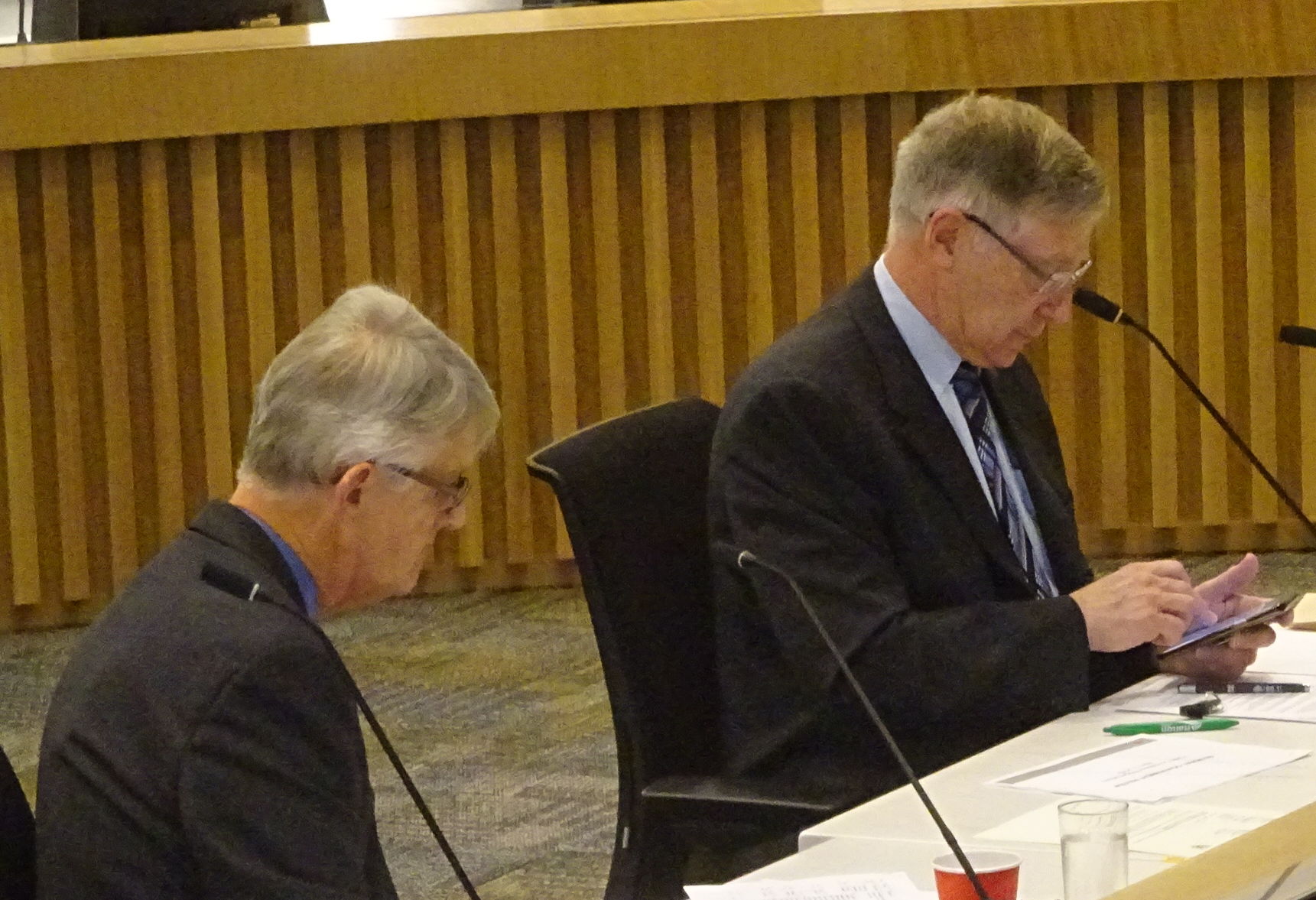
Michael Fenn and Ken Seiling preparing to hear Provincial Review delegation from Halton municipalities.
It became clear that Fenn and Seiling were looking for something different from the delegations.
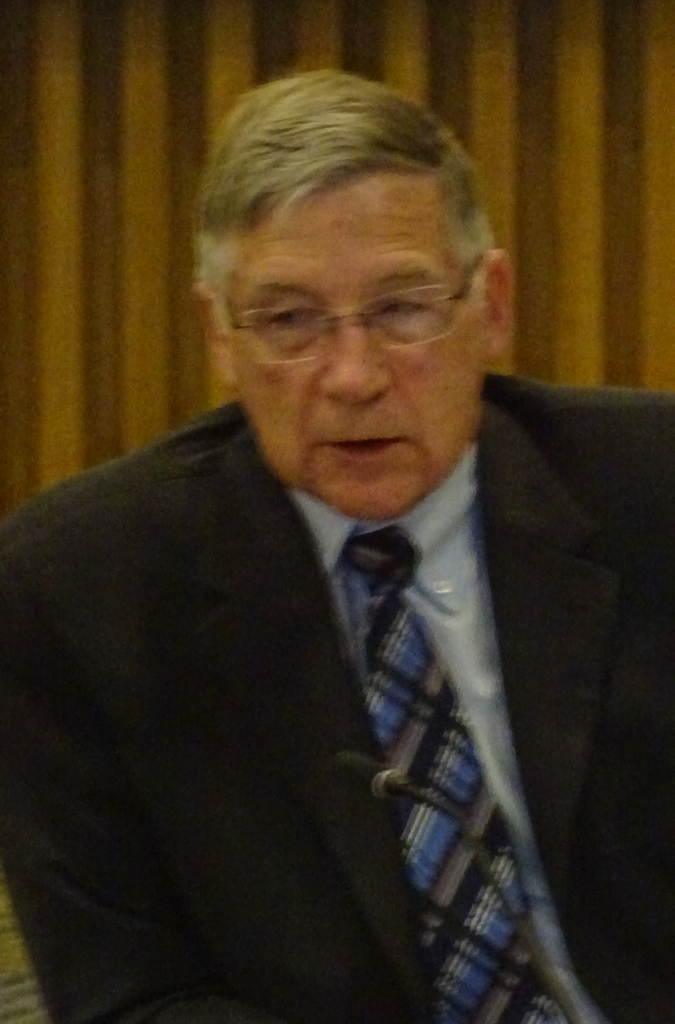
Ken Seiling – an organist who understood that the job of a politician was not to be the loudest one in the room.
Ken Seiling began his political career as a councillor for the Township of Woolwich; became Mayor several years later and then moved on to become the the Regional Chair where he served for 33 years.
A man of simple tastes, Seiling plays the organ, listens carefully and takes the position that “ the job was never about him”. He and his wife have lived in Elmira all his life where they raised their five children and now spends time with his nine grandchildren.
Ken is well known for his active support of community groups across the Region and is respected both locally and provincially. Ken has directed choirs and played in many churches across the Region. Seiling would never be described as the loudest one in the room. “That’s just not my style,” said Seiling. He long ago earned a reputation as an approachable, modest politician who did his work without burning any bridges along the way.
“If you alienate people, if you make them angry with you, at the end of the day your ability to do things is pretty limited,” he said.
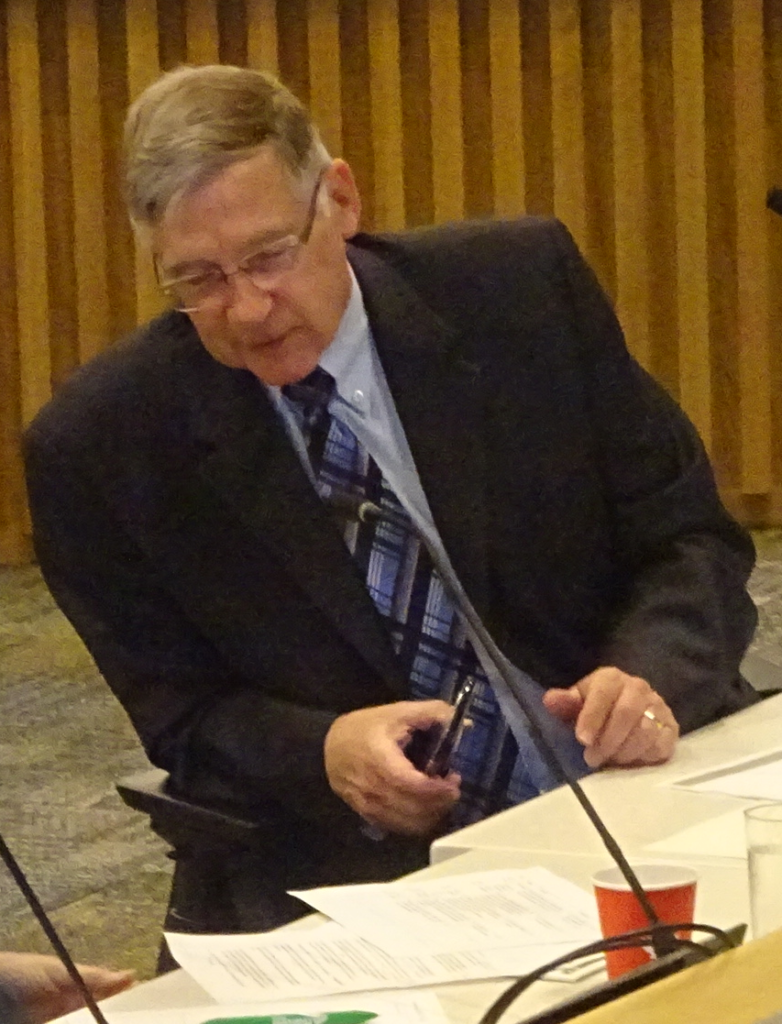
Ken Seiling, a prudent small c conservative served as a Regional Chair for more than 30 years.
“I’ve never thought the job was about me. The job was about doing things for the community, for other people. I never really worried if I had the profile or not. I was quite happy to go to an event and sit in the back row.”
Seiling is one of those prudent, small c conservative politicians who once served the province very very well.
Looking after people by improving affordable and supportive housing, increased child care, and services for seniors. This requires work with non-profit groups, the private sector and the Province to forge stronger partnerships and leverage funding.
Good financial planning which keeps taxes around inflation, maintaining an AAA credit rating which was achieved through good financial management, and work to create jobs and investment through more co-ordinated efforts at economic development.
In an age of bombastic politicians and divisive, overheated politics, Seiling has never needed to be front and centre – he’s an old-school advocate for civility and quiet diplomacy.
The issues for Seiling as a politician were managing growth, investing in infrastructure and encouraging investment and jobs to keep communities livable.
He’s especially proud of policies that have protected farmland and preserved some of the region’s rural character as it grew — an approach that early in his career drew some criticism.
“I was never anti-development. I was looking for balance,” he said. “We can’t stop the clock. We’re going to grow and we need to have economic growth … But at the same time we need to maintain the things that are really important to the community.”
Seiling works to create “ strong community rooted in good values and good people and good organizations. They need to continue to work together to continue to reinforce that,” he said.
Michael Fenn is at the same table as Seiling but not in the same position.
He has served on the administrative side – focused on policy and solid management.
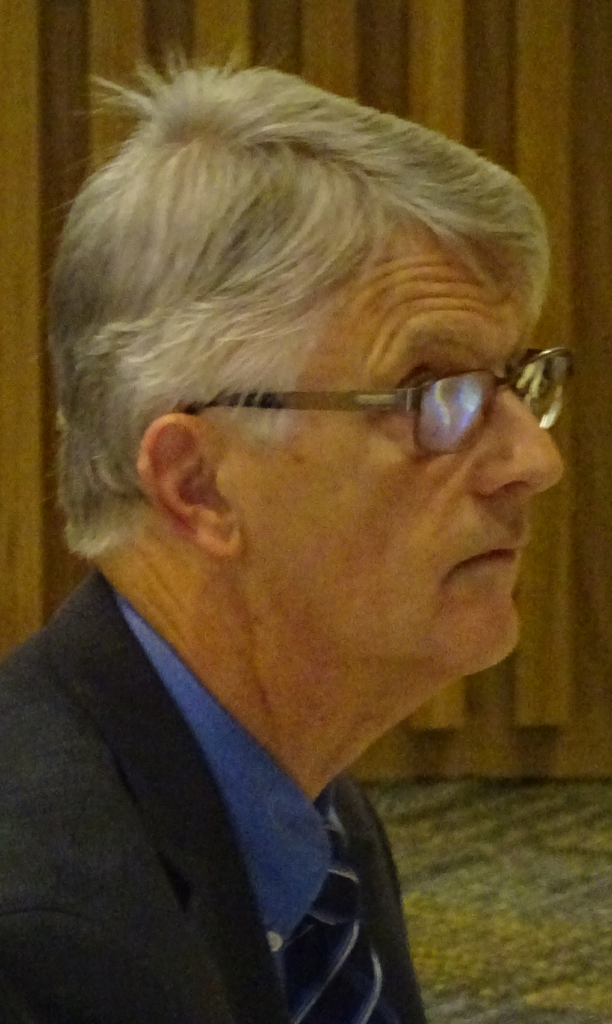
Michael Fenn, former Burlington city manager and Deputy Minister under three different Premiers.
Michael Fenn has been an Ontario Deputy Minister under three Premiers, municipal chief administrator in Hamilton and Burlington, and the founding CEO of both Toronto / Hamilton regional transportation authority Metrolinx and GTA regional health authority Mississauga Halton LHIN.
He is also Board Director with the C$85+ billion OMERS AC pension fund, chairing its Technology Committee, and with the Toronto Board of Education’s realty arm, the Toronto Lands Corporation.
He has served for several years as jointly appointed Facilitator for discussions between the Mushkegowuk Tribal Council of First Nations and the Ontario Government. He is a certified board director, having attained the C.Dir. designation in 2014.
He has policy written all over him.
Fenn researches and writes extensively on infrastructure and public policy. Topics of his recent major publications include: the impact of megatrends on rural infrastructure; reducing the regulatory burdens facing local business; an evaluation of public-private partnerships in building Ontario infrastructure; the role of technology committees in board governance; the evolution of the city manager position in municipal government; reform of Ontario’s water and wastewater system; and, the influence of megatrends on infrastructure investment.
Fenn is the founding CEO of the regional transportation authority Metrolinx, as well as the regional health authority Mississauga Halton LHIN.
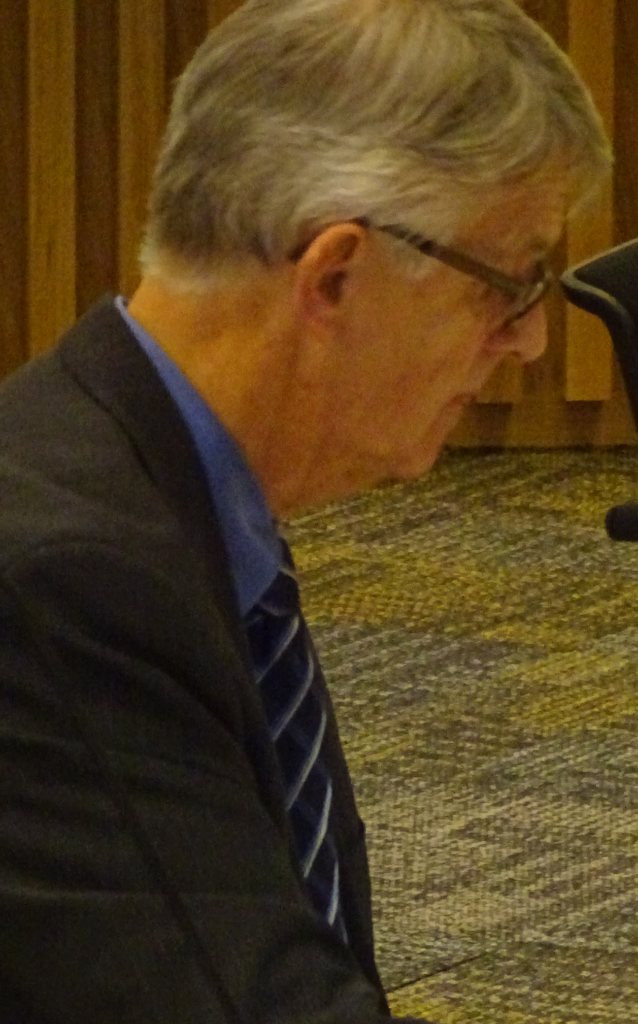
Michael Fenn – has policy wonk written all over him.
He helped restructure Burlington’s city hall, crafted Hamilton’s amalgamation, and worked on early iterations of Ontario’s Greenbelt and Places to Grow initiatives, according to a Hamilton Spectator profile in 2008.
He researches and writes extensively on infrastructure and public policy and is now a management consultant specializing in the public sector and healthcare.
“I’m a lifelong public servant; I’m used to working with political leadership,” Fenn said.
“I understand that the elected representatives of the people have a right to give broad direction in terms of our public policy and I think that’s entirely legitimate and appropriate. I am just an advisor. Obviously, I have my point-of-view, my professional credibility and my conscience, so those things would also be engaged.”
Before taking on the task of being one of two Special Advisors for the Provincial Review Doug Ford wanted done as part of his personal drive for smaller government Fenn was a retired public service executive, providing project-based consulting for governmental, non-profit, private-sector and First Nations organizations and serving as Board Director.
What was impressive was the way the two men handled the Halton delegations. They were seldom any more than a degree or two apart – neither brought as much as a hint of political affiliation – Seiling is on record as saying he has never been a member of any political party.
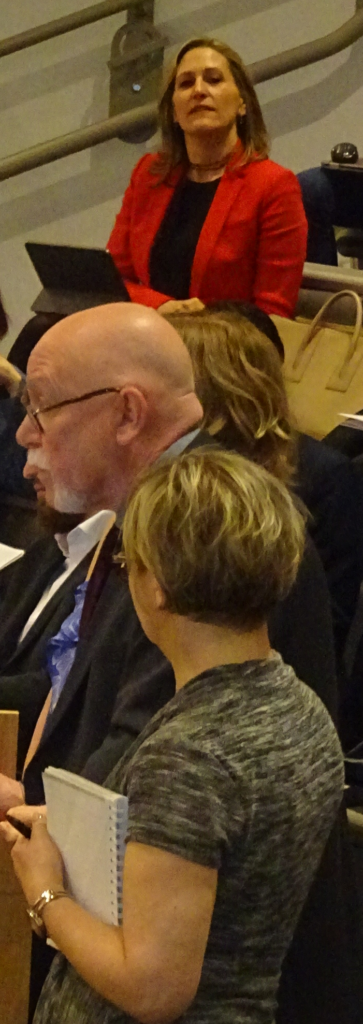
Burlington Mayor Marianne Meed Ward listening as the delegation from Burlington addresses the Provincial Review Special Advisors.
The people attending the hearing on Halton did have a key concern and that was would the two Advisors release the content of their report. Both pointed out that the report was not theirs to release to the public. They were engaged as Special Advisors to the Minister and it is the Minister that will get the report.
The handing over of the document from the Advisors to the Minister is when it will take on a political hue.
Seiling says change is part of government. “My experience has been…that no government should be static, there is always change because times change,” he said. “You can’t stay frozen in time” and added that he had no preconception of what the review should conclude.
“I am going into this with an open mind. All of the regions have some nuances, some differences, so we want to hear from everybody.”
Fenn said: “It’s important work, and I’m optimistic that we will produce some results that people are going to be pleased with”.
The review will examine Ontario’s eight regional municipalities (Halton, York, Durham, Waterloo, Niagara, Peel, Muskoka District, and Oxford County), the County of Simcoe, and their lower-tier municipalities.
What can be expected from the Review?
Harry Kitchen, professor emeritus, Trent University, who has worked closely with them. said: “Neither man is the type to bend to political pressure.
“I don’t know if the premier has a preconceived notion of what needs to be done, but if he does, he’s picked the wrong two guys,” said Kitchen.
“They’re honest, thorough, fair, I’ve never seen them in a position where they got pushed around in any political manner. I don’t expect it now.”
“He has a vast knowledge of municipal affairs,” he said of Fenn.
Fenn and Seiling have been tasked with consulting municipal leaders and staff, municipal and business stakeholders, members of the public and communities and organizations if necessary, and then deliver advice to the minister of municipal affairs and housing based on their expertise and assessment of the feedback.
Seiling said the government is expecting some results by early summer. Fenn said he didn’t think the tight deadline would be a problem.
“We have been involved in and around these issues for decades. We don’t need a whole lot of background or getting up to speed.”
















Thank you again for an excellent synopsis of the background and orientation of the two special advisors. WeLoveBurlington agrees that they are remarkably well qualified for the role that they have accepted and complement each other nicely. As you point out, the issue now is less what the report will contain and the recommendations to the government that it will put forward, than it is the ability of the public to review and respond. Indeed, this has been the fundamental issue from the beginning of what has been a very rushed and imperfect consultation process. As part of our delegation we urged the advisors to caution the government against making any rash changes to municipalities and to take the time to understand the extremely complex and diverse landscape that is Ontario’s municipal system. Hopefully, the initial deficiencies of a flawed process will be offset somewhat by a fulsome opportunity for citizens to review, discuss and respond to the report’s findings. We look forward to the opportunity if and when presented.